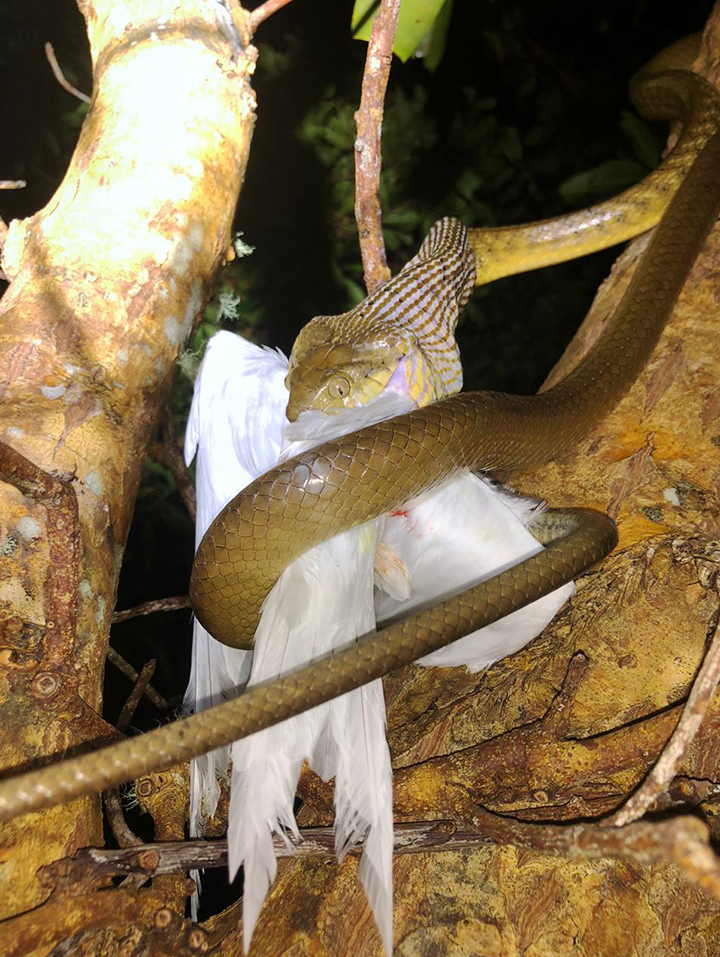When we think of snakes, the first images that often come to mind are those of stealthy predators slithering through the underbrush or coiled up in the shadows. But there’s one snake that takes the concept of ‘biting off more than it can chew’ to a whole new level. Enter the African Rock Python—a formidable predator with a penchant for overreaching its prey.
The African Rock Python: A Glimpse into the Wild
The African Rock Python (Python sebae) is one of the largest snake species in the world, capable of reaching lengths of over 20 feet and weighing up to 200 pounds. With such impressive physical attributes, it’s no surprise that these snakes are at the top of the food chain in their native habitats across sub-Saharan Africa. They are known for their impressive constricting abilities, using their powerful muscles to subdue and swallow prey whole.
A Gluttonous Appetite
Despite their fearsome reputation and impressive size, African Rock Pythons are notorious for their gluttonous tendencies. These snakes are known to tackle prey much larger than themselves, which often leads to some truly astonishing—and sometimes tragic—results.
For instance, there have been several documented cases of African Rock Pythons attempting to consume prey that is simply too large for them to handle. One notorious example involves a python that tried to consume a full-grown antelope. The massive size of the antelope proved to be too much for the snake, leading to a dramatic struggle as the python’s body stretched and contorted to subdue its meal.
Why Do They Do It?
The tendency of African Rock Pythons to bite off more than they can chew can be attributed to a combination of instinct and circumstance. In the wild, these snakes rely on their size and strength to capture prey. The larger the prey, the more energy and nutrients they gain, which is essential for their survival, especially during periods of scarcity.
However, the process of eating such large prey is fraught with challenges. Pythons have highly flexible jaws that allow them to consume prey much larger than their diameter, but this flexibility has its limits. If the prey is too large, the snake might find itself in a precarious position, struggling to digest its meal or even suffering from injuries if the prey fights back.
Survival and Adaptation
Despite the risks, the African Rock Python’s strategy of consuming large prey is not without its benefits. Successfully capturing and eating large animals can provide the snake with substantial nourishment, potentially sustaining it for weeks or even months. This is especially advantageous in environments where food is not consistently available.
Interestingly, the struggle to eat oversized prey can also reveal the resilience and adaptability of these snakes. This adaptability highlights their survival instincts and their ability to learn from their experiences.
Lessons from the Python
The African Rock Python’s habit of biting off more than it can chew serves as a fascinating metaphor for human behavior. Just as the python sometimes overreaches in its quest for sustenance, we too can find ourselves grappling with challenges that exceed our current capabilities. However, the python also demonstrates resilience and adaptability in the face of adversity—traits that can inspire us to approach our challenges with determination and creativity.
Ultimately, the African Rock Python’s remarkable—and sometimes reckless—eating habits remind us of the delicate balance between ambition and capability. Whether in the wild or our own lives, it’s crucial to recognize our limits while also embracing the opportunities for growth and learning that come with pushing those boundaries.
For more fascinating insights into the world of African Rock Pythons and their dietary habits, check out this article from National Geographic.
So next time you find yourself tempted to tackle a challenge that seems too ambitious, take a moment to reflect on the African Rock Python. Remember, while it’s important to aim high, staying grounded and adaptable is equally vital, ensuring that we don’t bite off more than we can chew.





